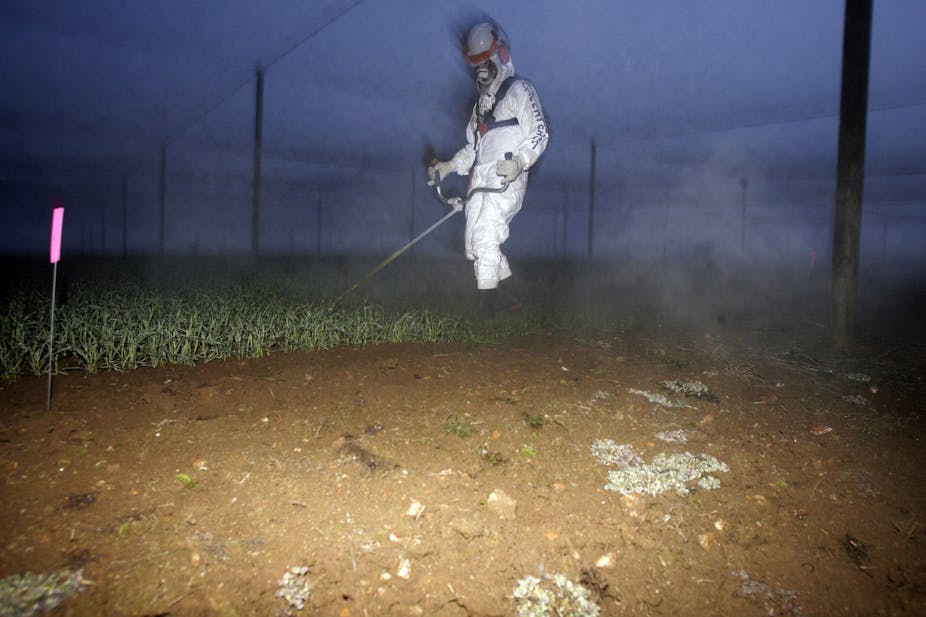Early yesterday morning Greenpeace Activists broke into a CSIRO research farm and destroyed a field trial of genetically-modified wheat.
I was appalled.
“But it was only a field trial,” I can hear some say, “Why get upset about it?”
To explain why I am upset, I need to explain what I do.
I am an agricultural scientist researching better ways to manage weeds, particularly those that have become resistant to herbicides.
Because the question will inevitably come up, I am going to declare my sources of research funding now.
My research program is funded by the Grains Research and Development Corporation (about $1.5 million this year shared among my collaborators at the University of Adelaide and across Australia) and Rural Industries Research and Development Corporation (about $0.5 million this year through their Weeds Program). Occasionally, I will do small research projects for other groups including agrichemical companies. These projects are typically funded at a few thousand dollars each.
Australian farmers and Governments are investing a lot of money in the research I am conducting. Field trials are an essential part of that research, because ideas need to be validated in the real world before giving them to farmers to use.
My team conducts many field trials each year testing weed management practices before advising farmers of their value.
If one of my field trials had been deliberately destroyed by a member or members of the public I would have been undeniably furious.
First, there is the loss of valuable information from the research. This can put back the development of new ideas, costing Australian farmers money.
Second, and most importantly, these field trials are the research of my staff and postgraduate students.
All the research staff working in my program are on short-term contracts, which is the nature of scientific careers these days. They need to continually produce research to further these careers.
For them, the loss of a field trial could mean the difference between a new grant and leaving science.
For postgraduate students, the situation is even more difficult. Typically, current postgraduate students only get two field seasons to complete their research. The loss of a field trial can have an enormous impact on their ability to complete their degrees on time.
Third, in addition to the hoped-for results, research trials can produce new leads in areas not originally considered. These leads can open up new possibilities for doing things better and more efficiently.
The trial that was destroyed had been assessed by the Office of the Gene Technology Regulator (OGTR) as not posing a significant risk to humans or the environment. The GM material was not going in to commercial food or feed production, and was restricted to a small area from which it was unlikely to escape.
Researchers conducting these trials are required by the OGTR to implement multiple strategies to manage potential risks of movement of genetically modified material from the trial site.
Ironically, the actions of the Greenpeace activists have greatly increased the risk that genetically modified material from the trial will escape into the environment.
There is no evidence to support the claims of hazard about this trial made by Greenpeace.
I am left with the view that the destruction of this trial was unnecessary and wanton. That’s why the destruction of this trial has left me completely appalled.
I travel through many of the world’s agricultural regions.
In my experience, Australian farmers are some of the most innovative in the world; but South American farmers are now not far behind.
To maintain their competitive edge, to produce more food on less land with less water and to look after the environment, Australian farmers will need to continue to innovate.
To do so, they are going to need access to all the useful technologies available.
Denying Australia’s farmers access to safe and useful technologies for ideological reasons is, in my view, tantamount to deliberately sending Australian farmers to the wall.

